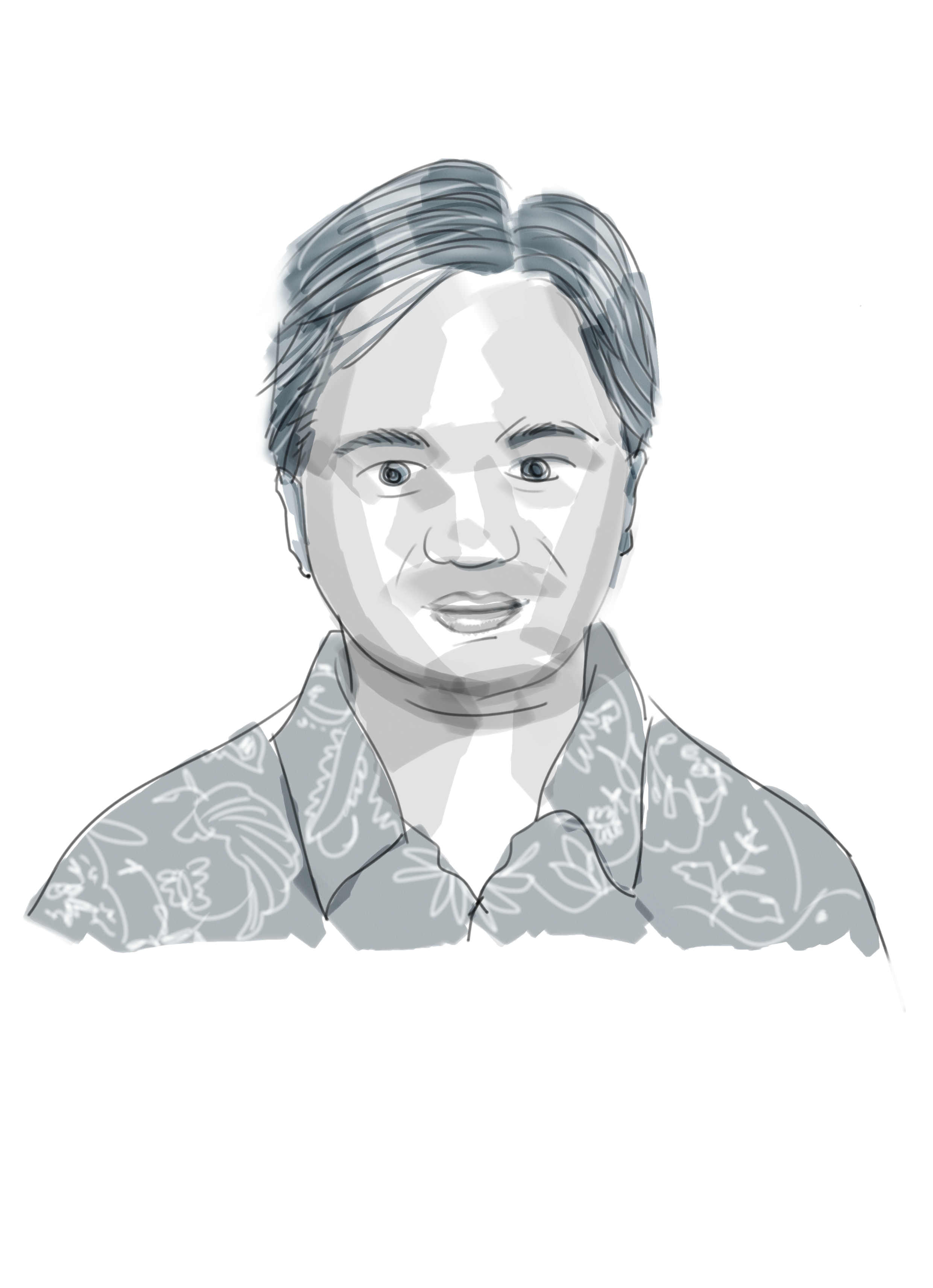When I was a teen, it seemed that the Pope would always be John Paul II, like the President would always be Soeharto. They had held their respective positions since before I was born, my parents remembered their predecessor, and they were smiling Cold Warriors. Dad recorded TVRI’s live broadcasting of John Paul II’s mass in Senayan back in 1989 and it was Grandma’s favorite tape.
But in the 21st century we have had three popes. The very popular John Paul II (Karol Wojtyła) died in 2005 and was succeeded by the German professor of theology Joseph Ratzinger, who assumed the name of Benedict XVI. Significantly more conservative than the late John Paul, he resigned in 2013, the first pope to do so in six centuries. The current pope, Francis (Jorge Bergoglio) is the first non-European pope.
A pope is the leader of the Catholic Church and the word comes from the Greek word “pappas” - father. According to Catholics, the first pope was St. Peter, who was appointed by Jesus to replace him as the leader of Christians. From early on, Christian leadership moved from Jerusalem to Rome. Naturally Roman bishops who were named after Roman gods assumed more Christian papal names; and their French and German heirs also adopted more sophisticated Italian names.
The institution of Christianity split in the 11th century, between the Latin-speaking Catholic Church and the Greek-speaking Orthodox Church. Then in the 16th century northern European countries built their own churches (“The Reformation”) and denounced Catholicism. They are known collectively as Protestants.
The big bang in Catholic world view came with the Second Vatican Council from 1962 to 1965 which simplified rituals and customs, accepted multiculturalism among global Catholics, supported social justice, opened friendships with other churches and religions, and welcomed grass-roots Catholic movements. If Catholics of those days thought, “the church has gone hippie”, the assessment was not unfair.
I took the liberal (or socialist?) tradition of Indonesian Catholicism for granted. My Religious Studies textbooks were filled with stories about hardships of farmers, labor demonstrations, and the Washington consensus. My Catholicism teachers in school came in two flavors – natives of Flores Island who lived hard knock lives and gave their sarcastic two cents about current affairs, or philosophical Javanese priest-in-training who gave preteens heavy materials like John Locke and Anne Frank.
So in Australia I was surprised that the local Catholics were preoccupied with abortion, stem cell research, and gay people (while being in defensive mode against the accusations of child abuse). A lecturer attributed the liberalism of Indonesian Catholic church to the liberalism of Dutch Catholics and the spiritual fluidity of their Javanese protégés. On the other hand, more conservative Irish, Polish, and Italian priests still drive the church in English-speaking countries (same goes with their Chinese and Indian successors in Singapore and Malaysia).
I think I am not the only one who craves the spiritual and social supports offered by the religious community, while also being less interested with the dominance of religion in our Indonesian social life. Then again, the universality of Catholicism (the word itself means “universal”) is something I am comfortable with. My family’s favorite TV show is Blue Bloods, as the Reagans’ Catholic background is relatable to us. Any Catholic Mass anywhere in the world would follow the same order, has the same readings, and roughly has the same customs, overcoming the language barrier.
Pope Francis’ recent American tour attracted major attentions, because of his popularity, because it’s the United States and it dominates our Internet, and because he would jump into the American culture wars. While Catholics anywhere would happily welcome any visiting Pope, many Catholic American politicians stayed away from him, especially the Republicans.
As if they preferred to avoid the scathing issues involving women, Catholic politicians like Rick Santorum and Bobby Jindal claim that their biggest disagreements with Pope Francis are about climate change and capitalism. Not long after his audience with the Pope, the Catholic Speaker of the House of Representatives John Boehner – supposedly a moderate – resigned.
On the other hand, the Pope himself and several media have reminded that Francis is not a liberal by Anglo-American standard. He speaks for climate change and the poor, but not for gay and women’s sexual rights. His liberal supporters would argue that at least he does not condemn homosexuality, the theory of evolution, and divorce. The high-profile tour, however, leaves some bitter aftertaste after he vaguely supported the decision of Kim Davis, a county clerk who refuses to issue marriage licenses in protest to the legalization of same-sex marriage in United States.
Many Filipina writers of Rappler articles featured here are not fans of Francis and the Catholic Church. It’s understandable when you live in a developing and overcrowded Catholic-majority country where the church openly condemns contraception and stands in the way of the government’s popular reproductive health law. And, yeah, Pope Francis supported the church’s stance.
Francis continues the long trend of liberal popes over the last century (indeed, some very conservative Catholics believe that the church had been “hijacked” even before they were born). Again, not liberal by Anglo-American standard, not by feminism standard. Certainly he or any other religious leaders cannot deviate from their creeds, so not only expectation on him must be managed, but also disappointment of him.
I wish that the Catholic Church would accept female priests, end celibacy, legalize divorce and contraception, and so on. Perhaps in the Third or Fourth Vatican Council. It’s not daydreaming, but that is how many Protestant churches are run – in the West.
In the meantime I am still a member of the Catholic Church. Indonesian Protestant churches are still too conservative for my taste (never mind the Evangelical churches) and I am too irrational to become an atheist. And I still need my Catholic community. Plus, millions of Catholics use contraception and thousands have queer lifestyle and are still in the church. The Pope has his values and so do we.








Comments